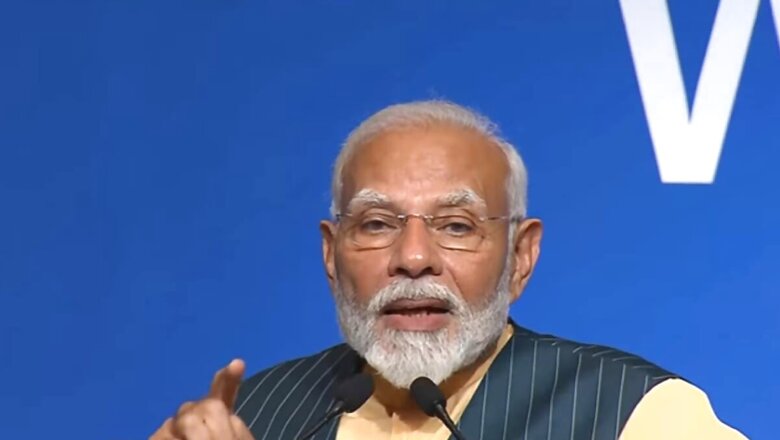
views
Prime Minister Narendra Modi is likely to address the high-level UN General Assembly session here on September 26, according to a provisional list of speakers issued by the UN.
The high-level General Debate of the 79th session of the UN General Assembly will take place from September 24-30.
As per the provisional list of speakers for the General Debate issued by the UN on Monday, India’s “Head of Government” is scheduled to address the high-level session in the afternoon of September 26.
The list is not final and the UN releases updated provisional lists of speakers in the weeks leading up to the high-level session to reflect any modifications in attendance, schedules and speaking slots of leaders, ministers and ambassadors.
Brazil, traditionally the first speaker at the debate, will open the high-level session on September 24, followed by the US, with American President Joe Biden delivering his current term’s final address to global leaders from the iconic UN podium before his country heads to presidential elections in November.
Modi, who was sworn in last month as India’s Prime Minister for a historic third term, last addressed the annual high-level UNGA session in September 2021.
Prime Minister Modi visited the UN headquarters on June 21 last year, leading the historic Yoga Day commemoration at the North Lawn of the world body’s headquarters before heading to Washington DC for a State Visit hosted by Biden.
UN Secretary-General Antonio Guterres will present his report before the start of the General Debate, followed by an address by the President of the 79th session of the General Assembly.
Guterres is also convening the ambitious Summit of the Future at UN Headquarters during the high-level week, with the action days slated for September 20-21 and the Summit scheduled on September 22-23.
World leaders will convene at the United Nations to adopt the Pact for the Future, which will include a Global Digital Compact and a Declaration on Future Generations as annexes.
“The Summit is a high-level event, bringing world leaders together to forge a new international consensus on how we deliver a better present and safeguard the future,” the UN said.
“Effective global cooperation is increasingly critical to our survival but difficult to achieve in an atmosphere of mistrust, using outdated structures that no longer reflect today’s political and economic realities,” it added.


















Comments
0 comment